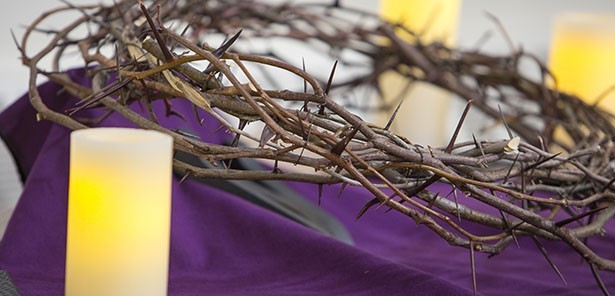September 22: St. Thomas of Villanova
On Sept. 22, the Catholic Church remembers Saint Thomas of Villanova, a 16th century Spanish Augustinian monk and archbishop who lived a life of austerity in order to provide for the spiritual and material needs of his people.
Born during 1488 in the Spanish region of Castile, in the town of Villanova de los Infantes, Thomas Garcia was raised to take after the faith and charitable works of his parents Alphonsus and Lucia. His father, a mill worker, regularly distributed food and provisions to the poor, as did his mother.
Generous and devout from an early age, their son was also intellectually gifted, beginning his studies at the University of Alcala at age 16. Within ten years he had become a professor of philosophy at that same university, where he taught for two years before being offered a more prestigious position at the University of Salamanca.
Thomas, however, chose not to continue his academic career. After his father’s death, he had determined to leave much of his inheritance to the poor and sick rather than retaining it himself. At age 28, after much deliberation, Thomas embraced a life of chastity, poverty, and religious obedience with his entry into the monastic Order of St. Augustine.
Thomas made his first vows as an Augustinian in 1517 and was ordained a priest in 1518. He taught theology within his order and became renowned for his eloquent and effective preaching in the churches of Salamanca. This led to his appointment as a court preacher and adviser to the Holy Roman Emperor Charles V.
Presented with the prospect of being named an archbishop, Thomas initially declined and instead continued his work within the Order of St. Augustine, during a period that saw its expansion across the sea to Mexico. In August of 1544, however, he was ordered by his religious superiors to accept his appointment as the Archbishop of Valencia.
Thomas arrived wearing the same well-worn monastic habit that he had worn for several years and would continue wearing for years to come. Given a donation to decorate his residence, he funnelled the money to a hospital in need of repair. After his installation, he visited local prisons and ordered changes to be made in response to their inhumane conditions.
While continuing his life of monastic asceticism, the archbishop worked to improve the spiritual lives and living conditions of the faithful. He gave special attention to the needs of the poor, feeding and sheltering them in his own residence. During the same period he worked to promote education, restore religious orthodoxy, and reform the lifestyles of clergy and laypersons.
After 11 years leading the Archdiocese of Valencia, St. Thomas of Villanova succumbed to a heart condition at the end of a Mass held in his home on Sept. 8, 1555. He is said to have died on the floor rather than in his bed, which he insisted on offering to a poor man who had come to his house. Pope Alexander VII canonized him in 1658.













